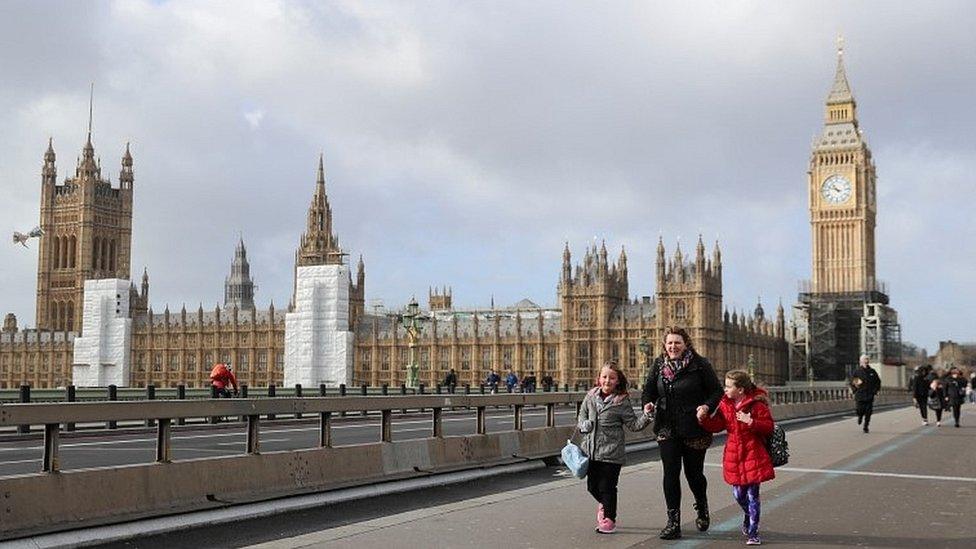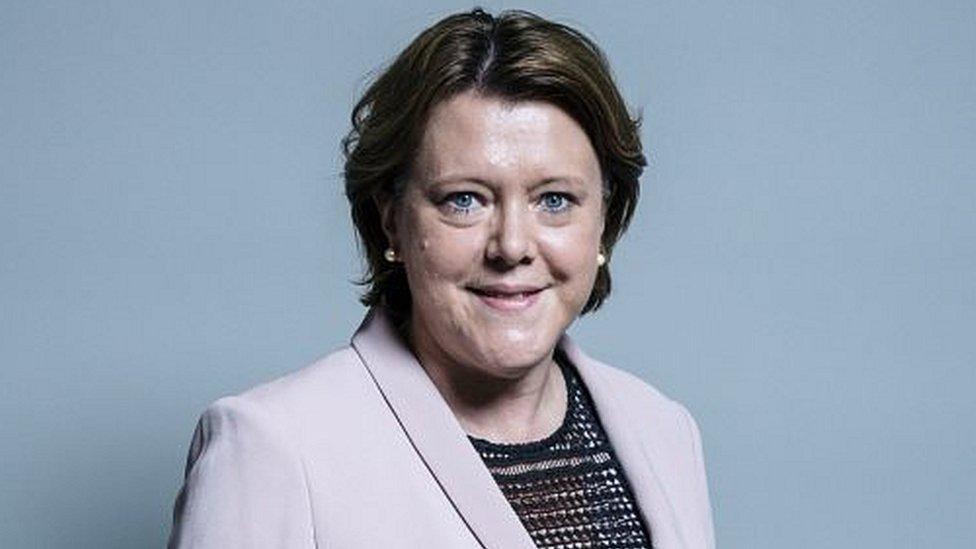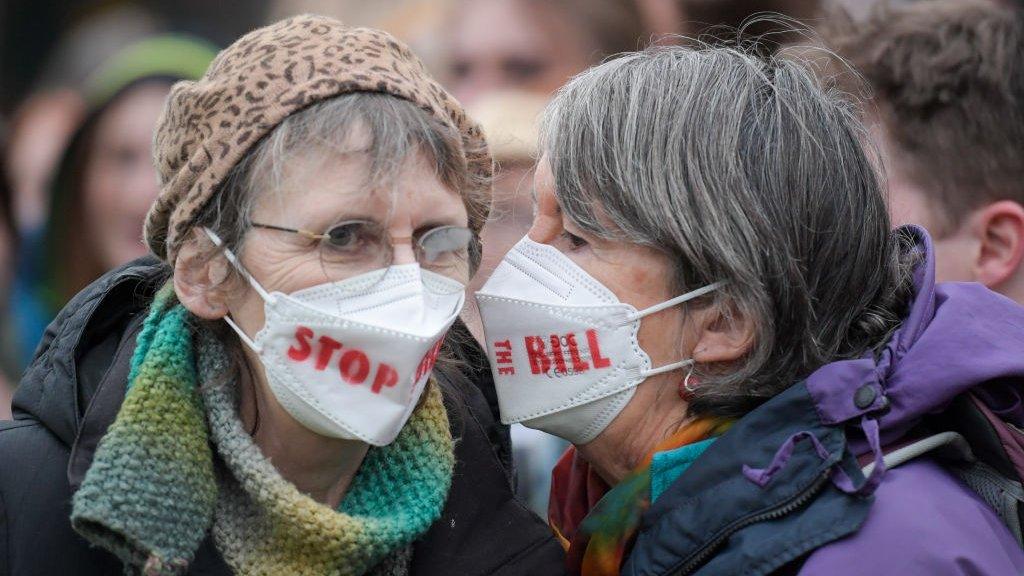What's happening in Parliament next week?
- Published

Events in Ukraine seem sure to dominate the parliamentary week, starting on Monday, when the Commons is expected to vote through all stages of the Economic Crime Bill in a single sitting.
And there will also be a stream of government statements and urgent questions as events unfold - and votes on orders for additional sanctions and other measures might well be added to the schedule.
The long-promised bill enacts one of the major aims of campaigners against money laundering - creating a register that will mean foreign owners of UK property must declare and verify their identity with Companies House.
The aim is to stop overseas criminals and oligarchs using agents to create companies which then buy up property in the UK, preserving their anonymity.
But, even within the constraints of a tight timetable, expect considerable probing from some of the formidable alliance of backbench campaigners which brings together MPs who have been campaigning on Russia, on anti-corruption measures and on banking reform - people like Dame Margaret Hodge, Sir Iain Duncan Smith, Kevin Hollinrake, Chris Bryant, Layla Moran.
'Worrying loopholes'
They have long pressed for tougher action against oligarchs who launder their illicit billions through the "London Laundromat" of property transactions and anonymous companies. There are already a number of amendments down from these quarters.
There will only be three votes allowed on amendments during this fast-track process. Opposition parties are cooperating to rush the bill through, so any pressure will mostly take the form of awkward questions and demands for assurances from ministers, and there are attempts to coordinate amendments against what Dame Margaret called "worrying loopholes in the bill".
Alongside the debates in the chamber, the Treasury Committee will be looking at the effectiveness of Russian economic sanctions, the impact on Russia and the UK, and the role of the Economic Crime Bill in sanctioning oligarchs.
The bill then moves rapidly to the Lords for a second Reading debate on Wednesday, followed by Committee, Report and Third Reading, probably on Monday 14 March (among other things, this pushes back to last Report Stage day on the Health and Care Bill, which was due to contain some of the most important action, to Wednesday 16 March).
All of this means the traffic jam of major legislation inching its way through the Lords seems to be getting worse.

The treatment of Ukrainian refugees is likely to be debated
This week saw significant government defeats on the detail of the Health and Care Bill (Baroness Cumberlege's important amendment on the issue of NHS workforce planning), while whole chunks of the Nationality and Borders Bill have been unceremoniously deleted by peers.
That will mean epic bouts of "ping-pong" as the Commons and Lords seek to finalise these two very important bills.
And, factoring in the Easter holiday, there are not many legislating days left before the expected late-April prorogation of Parliament - a problem only exacerbated by the late addition of the Economic Crime Bill to the workload.
Expect plenty of sittings to extend into the small hours.
Turnout concerns
The regularity with which the government is losing Lords votes on major bills is getting a bit embarrassing. "It's like shooting fish in a barrel," one opposition peer told me.
A key factor is that the Tory troops are just not turning out. At one point this week the government was being defeated by little more than 80 opposition peers (the combined forces of Labour, crossbenches and Lib Dems, plus the occasional Conservative rebel and the odd bishop).
The point here is when the government vote is down to 70 or so it means two-thirds of Conservative peers are not backing ministers in important votes.
That's a real problem, especially when it means MPs are repeatedly being marched through the Commons lobbies to reverse Lords defeats on sensitive issues.
This will include a number of issues around the treatment of refugees, just at the moment the Ukraine refugee crisis is hitting.
The question is whether ministers will offer concessions to get their legislation through? Or will they try to face down rebellious peers?
With the government keen to hold a State Opening, to launch a new legislative programme, and being a post-pandemic political reset, there seems to be some urgency to complete the current batch of legislation and move on.

Ex-cabinet minister Maria Miller will lead a debate on women's rights
Committee action includes Foreign Secretary Liz Truss before Foreign Affairs on Monday, after her session last week was postponed, much to the irritation of the committee.
Meanwhile, Home Affairs is unhappy that Immigration Minister Kevin Foster has declined an invitation to give evidence on Ukraine refugee crisis. It has asked him to reconsider.
Watch out, too, for the annual International Women's Day debate on Thursday, led by former cabinet minister Maria Miller. She will be focussing on the importance of democracy in protecting women's rights and on the impact of the Ukraine crisis on women.
Related topics
- Published28 April 2022

